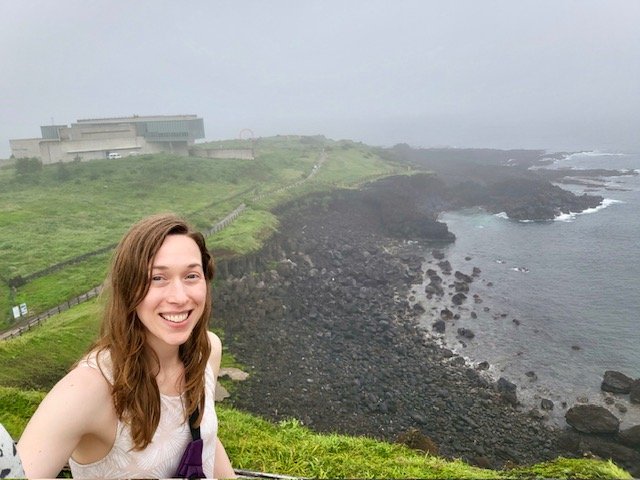An Interview with
Christen Lee
Christen’s poem, “A Dream Within a Dream” is featured in
Dulcet Literary magazine, vol. One, Issue No. 1
Interview by Anna Brunner,
Associate Editor, Dulcet Literary Magazine
How long have you been writing poetry? What initially drew you to the medium in the first place?
I started writing poetry at age 13. Poetry has been a constant companion over the years, a channel through which I have learned to process the world as it occurs around and within me. In metaphor, I discover meaning, often in surprising ways. I think that’s the beauty of poetry, what brings me back to the page again and again. It’s a space where all the complexity, absurdity, and despair of living can be sculpted into something not only palatable but also beautiful.
In "Dream Within a Dream", you explore the idea of moving backwards in time, peering at the past from the perspective of the future. What first inspired this idea? In your poem "Where Loneliness Begins" you write in a similar vein to the themes in "Dream Within a Dream", recounting your life from the present backwards into the past. Why do you think you might gravitate towards this sort of concept in your poetry?
I’ve long been fascinated by the concepts of time and space-time. I like to imagine time as a continuum, a medium through which we can figuratively move and interact with our past selves. In “Dream Within a Dream,” I venture backward in time, revisiting formative moments in my life, on a quest to find my essential self, or soul, if you will. I love where the poem finally leads, that tender place of imagination, the longing within the mother heart. While writing this poem, I envisioned an intergenerational nesting of mother and child and child and mother, which brings to mind the line from Whitman’s “Song of Myself: “Every atom belonging to me as good belongs to you.
Throughout this poem, you refrain from specifying any age as you work your way through your past, except when you reach your twenties. At this point, you are specific, mentioning the ages of 26, 25, and 22. Was there a particular reason for this? If so, what was it?
What an interesting observation regarding age specifiers throughout “Dream Within a Dream.” I feel that the beginning and ending of the poem contain more age-defining features, while the middle feels less certain. I suppose this is apropos of one’s 20’s, or at least my 20’s, which felt like a fumbling into finding myself punctuated by key moments of clarity. So the timestamps throughout that stanza help shape the story into a more cogent whole.
Do you ever pull from your experience as a family nurse practitioner when you write your poetry? If so, how?
While most of my themes revolve around my children, family, concepts of hope, healing, loneliness, and despair, all of my writing is informed by my day-to-day interactions and observations, which includes my work in health care. I’m continuously inspired by the resilience and generosity of the human spirit. Being a health care provider is a privilege. In caring for others, my heart has learned to open and break, again and again. As Mary Oliver said, “I tell you this to break your heart, by which I mean only that it break open and never close again to the rest of the world.”
What would you hope for readers to take away from "Dream Within a Dream", and your poetry in general?
Ultimately, I hope for my readers to take away from my poetry a feeling of connection, a communion in this great adventure of living. I also hope to impart a sense of agency and urgency, a memento mori, or an acute awareness of our small but significant place in the cosmos. Not only is poetry the language of the sublime, but it also serves as an everyday portal to wakefulness and wonder for all the beauty this world holds.
Read Christen’s poem, “A Dream WIthin a Dream” in dulcet Literary magazine, vol. One, ISsue No. 1.
Poetry
Christen Lee bio
Christen Lee is a family nurse practitioner in Cleveland, Ohio. Her writing has been featured in Rue Scribe, The Write Launch, Aurora, Humans of the World, Sad Girls Club, New Generation Beats Anthology, Encephalon, In Parentheses, The Elevation Review, and Moot Point among others.
